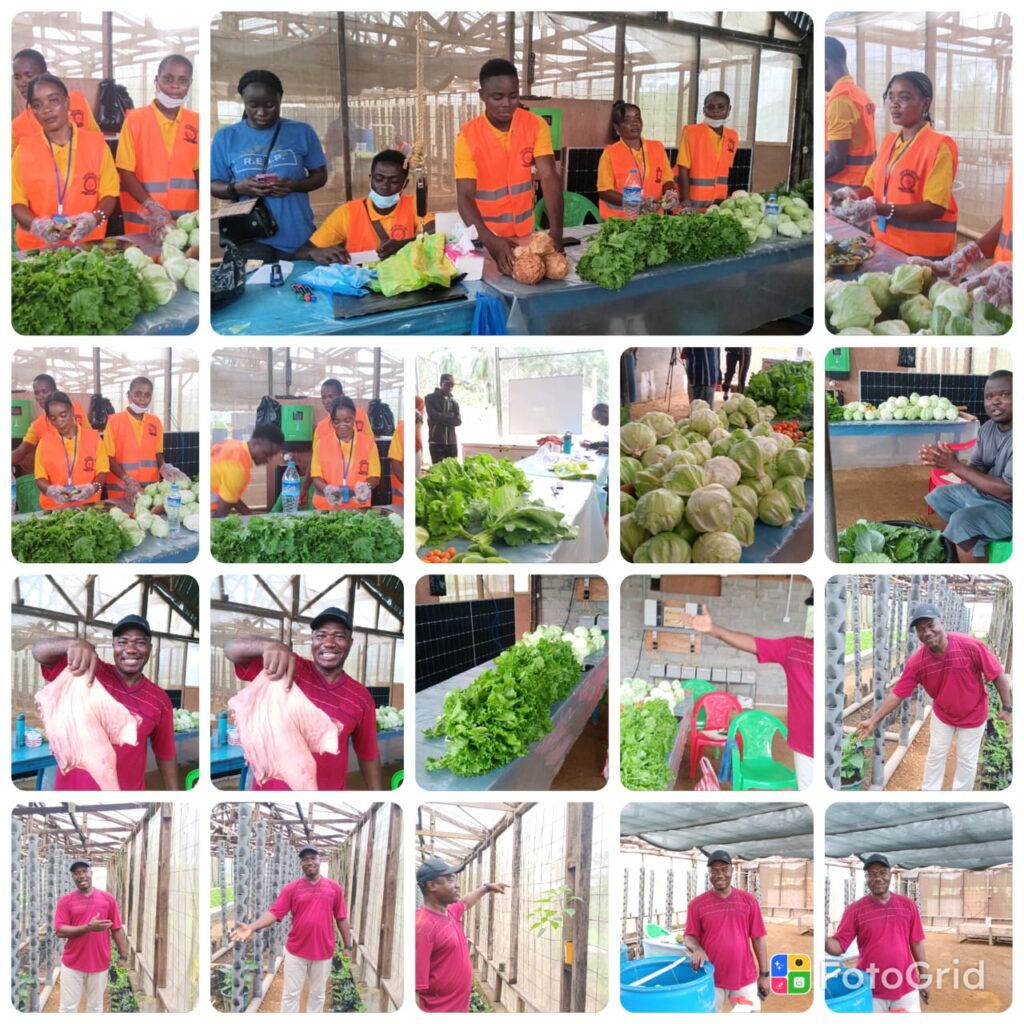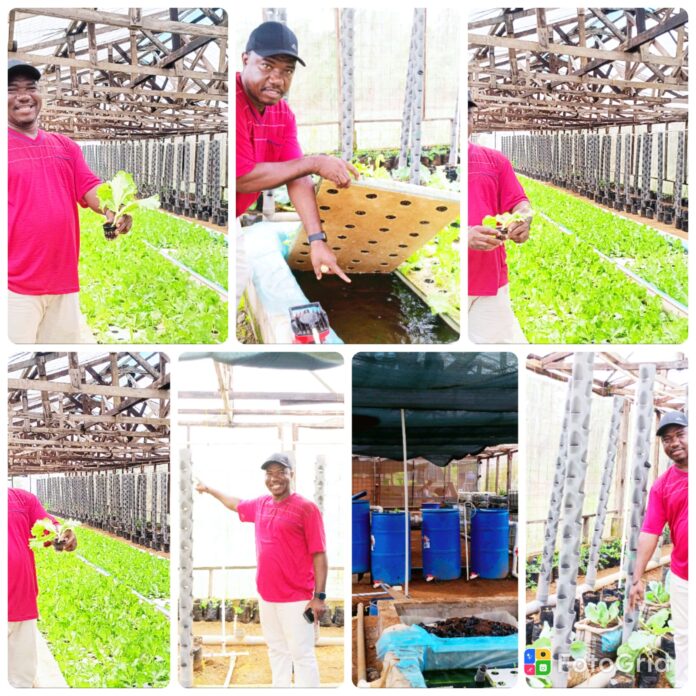In the heart of Liberia, on a sun-drenched stretch of farmland just outside Monrovia, the Restoration Educational Advancement Programs (REAP) is quietly leading a grassroots revolution — one defined not by protests or policies, but by tilapia, cucumbers, and vocational education.
Founded in 2002 and registered in the United States, REAP is a non-profit organization that blends education, agriculture, and enterprise in ways few institutions in Liberia have dared to try.
Under the leadership of National Executive Director Mr. Julius Wessee, REAP has expanded beyond its humanitarian mission to become a practical model for youth empowerment, food security, and sustainable development.
“This isn’t just farming,” Wessee said during a recent walk-through of REAP’s bustling campus. “This is future-building. We’re planting more than seeds. We’re planting self-worth, skill, and sustainable livelihoods.”
From Soil to Skill: A Practical Model for TVET
At the core of REAP’s operations is its integration of vocational training —specifically aligned with Liberia’s Technical and Vocational Education and Training (TVET) framework. Wessee emphasized that REAP goes far beyond traditional classroom instruction. “We don’t just train hands,” he said. “We shape minds. We build character.”
According to him, REAP’s curriculum blends hands-on farming, aquaculture, and livestock management with social development and leadership training. This holistic approach is designed to empower young Liberians — many of whom are unemployed or out of school — with practical skills they can immediately use to earn a living or start their own agri-businesses.
“Our goal,” Wessee said, “is to equip students with tools they can take into the real world. Every fish harvested or vegetable grown is a lesson in science, responsibility, and entrepreneurship.”
Aquaponics and Innovation: Farming for the Future
One of REAP’s flagship innovations is its Aquaponics Project — a solar-powered, closed-loop farming system that combines tilapia farming with vegetable cultivation. Water from the fish tanks is circulated to nourish crops such as parsley, lettuce, and carrots, making it an eco-friendly, low-waste operation.
“The fish feed the plants, and the plants clean the water — it’s a perfect balance,” Wessee explained. “This is farming for the future. It’s sustainable, efficient, and ideal for communities with limited access to arable land or electricity.”
The fish, primarily tilapia, are known for their clean, mild flavor and are sold directly to consumers. Vegetables grown in the system are similarly sought after — described by local chefs as some of the freshest in Liberia.
A Growing Enterprise: The Piggery
Just a short walk from the aquaponics center, REAP’s modern piggery stands as another pillar of its agricultural ecosystem. Here, pigs are raised on a special high-protein diet in sanitary, well-ventilated pens. The result is a supply of lean, tender pork that is not only sold at local markets but also grilled on-site for guests and visitors.
“We raise quality pork — not just in quantity, but in care,” said Wessee. “People come for the taste, but they leave inspired by the mission.”
The piggery, like the aquaponics project, is both an educational tool and a revenue generator. Proceeds from pork and fish sales help sustain REAP’s programs while reinforcing the message that agriculture can be profitable and dignified.
Feeding a Nation, One Young Farmer at a Time
REAP’s work comes at a critical time for Liberia. According to World Bank data, more than 60% of the country’s population is under the age of 25, and youth unemployment remains a major challenge. Food insecurity and dependence on imported goods further strain the nation’s development.
Against this backdrop, REAP provides a model that addresses multiple challenges simultaneously: education, employment, and food production.
“This is what holistic development looks like,” said a visiting Ministry of Agriculture official during a recent tour. “REAP is not waiting for the government to fix everything. They’re taking action, and the results are clear.”
Community Impact and Open Doors

The REAP campus has become a local hub for innovation and opportunity. Visitors — including government leaders, international partners, and curious locals — are invited to tour the facilities, learn about the processes, and even sample grilled pork or fresh fish.
Many leave with more than just full stomachs or baskets of produce. “They leave with ideas,” Wessee said. “They see what’s possible when education meets innovation.”
REAP also encourages community participation. Produce is sold daily, and the organization maintains open communication lines for customers and potential partners. “We’re always working,” Wessee said. “Any day, someone is harvesting or delivering.”
Looking Ahead
With eyes set on expansion, REAP is seeking partnerships to replicate its model across Liberia. Discussions are underway to introduce aquaponics systems in rural schools and extend the piggery concept to other regions.
But Wessee remains focused on the core mission. “Our success isn’t just in what we produce — it’s in who we empower,” he said. “If a young person leaves REAP with confidence, skills, and a sense of purpose, then we’ve done our job.”
A Model Worth Emulating
As the sun rose higher over the REAP campus, its fields glistening with dew and promise, one thing became clear: REAP is more than a program. It is a movement.
And in a country striving to rise from the roots of its challenges, perhaps no tool is more powerful than one that teaches its people to grow — literally and figuratively — one harvest at a time.



